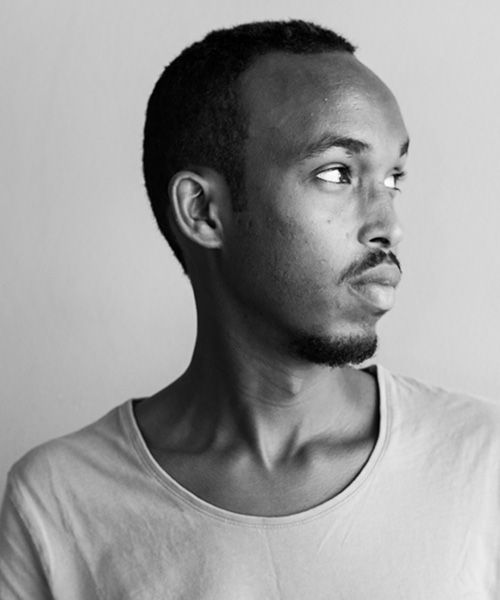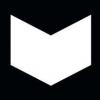Reality Testing Episode Three: About Aboutness
This is Reality Testing, our column where Khalid Warsame and Joshua Barnes fight over an idea. KW So our increas ...
Read MoreThis is Reality Testing, a new column where two of the smartest people we could find (on Twitter)&nb
Discussed: novels that do not want to be novels—fabricated evidence—just how naive is this guy?—capital-H History—French writers with ideas, avoidance of
So, Khalid, HHhH. What is this? Why are we talking about it?
Well, HHhH. What hasn’t it got? Nazi intrigue, Czech freedom fighters, an assassination plot gone awry…
Yes. This is a novel about a plot—’Operation Anthropoid’—to kill a high-ranking SS official named Reinhard Heydrich. This is also a novel that very badly does not want to be a novel. Laurent Binet very badly does not want to be writing a book. And so hand-wringing abounds as he tells us about the guilt he experiences while writing: ‘I’m fighting a losing battle’, he says. ‘I keep banging my head against the wall of history,’ and so on. It’s like we have two texts here: one a fairly straightforward historical thriller, the other a parallel commentary trying its hardest to undo or negate that narrative. At one stage Binet calls HHhH an ‘infranovel’, whatever that means. What do you make of all this?
I’ll be honest here: when I first read this novel, I absolutely loved it. Binet is writing a novel (one based on historical fact with very few embellishments) but also, at the same time, he’s writing a novel about writing a novel. There are chapters where he ruminates on his failing relationship with Natacha (who sounds like a woman with endless patience), his difficulties with Natacha’s family, and his own shortcomings as a writer. There’s even a chapter that was cut from the novel (but printed here in The Millions) where he rails against another audacious World War Two novel, Jonathan Littell’s The Kindly Ones, that had the temerity to be released to rave reviews before his novel. The whiny petulant writer part of me just loves Laurent Binet. But then there are the problems with this novel. First of all: Binet just doesn’t know how to write dialogue at all. This is forgivable: HHhH is still a gripping read and there isn’t much dialogue, anyway. But, what really soured my opinion not so much on the novel but on Binet as a writer were his statements during this Guardian interview. The interviewer remarked that he could never be certain that the Laurent Binet in the book was identical to the Laurent Binet in the novel. With an almost profane blitheness, Binet asserts: ‘He is absolutely identical. When I was a student I was always annoyed by the teachers telling me you have to make the distinction between the author and the narrator.’
As soon as I read that, I thought: just how naive is this guy? Just where does he get off? Everything is fiction on some level, even bald memoir, but to claim that it is ‘absolutely identical’ to reality? This is too radical a statement. Binet writes ‘This is what I think: Inventing a character in order to understand historical facts is like fabricating evidence.’ So, he’s condemning Solzhenitsyn’s fiction as ‘fabrication’? Really? He’s accusing Harper Lee and Leo Tolstoy of fabrication? Really? Who does he think he is?
Right! That comment about being ‘absolutely identical’ to his narrator—the sureness of that assertion, its righteousness—seems to fit into Binet’s broader rhetorical style throughout HHhH. For example, Binet describes finding out that a film he had watched called Patton was largely exaggerated or fictionalised: ‘So, basically, the film is about a fictional character whose life is strongly inspired by Patton’s, but who clearly isn’t him,’ Binet writes. ‘And yet the film is called Patton.’ He goes on: ‘And that doesn’t shock anybody. Everyone finds it normal, fudging reality to make a screenplay more dramatic.’
In that ‘everyone’—which I have taken the liberty of italicising—I think I hear something of what you describe. But obnoxiousness is not necessarily an aesthetic problem, and maybe that’s all this is.
I don't think Binet really understands what it means to be a postmodern writer tbh.
I know! For what it’s worth, though, I think that HHhH states its thesis most clearly at the end of the paragraph I was just quoting, when Binet writes—actually, just quickly, before I forget, does your edition also not have page numbers?
It doesn’t.
Okay, I want to come back to that.
You were saying.
Okay, so, yes, the novel delivers its thesis when Binet, after expressing more compunction about the ‘glib falsification’ of so many historical novels, writes the following: ‘What would be the point of “inventing” Nazism?’
On some level, I agree with Binet. For example: for all its urgency and force, no novel about the atrocities of the Nazi regime (especially one written by Jonathan Littell or Martin Amis) can compare to, for example, Nikolaus Wachsmann’s magisterial KL: A History of the Nazi Concentration Camps. But coming back to the original thought we explored in our previous column: They’re not the same thing. The only thing a fictional novel has in common with a historical accounting is the nausea of the events they describe. Clearly, a well researched novel doesn’t have the same claim to truth as a well-researched history, but they both have the same claim to the memory of the events. And they both serve different, yet equally important, purposes. This is where I think Binet’s novel runs aground. Because his most obvious comparison is the absolutely unassailable W.G. Sebald (the writer Binet would most like us to compare himself to), whose novel Austerlitz similarly blends fact, fiction, and the writer’s own biography into a fictional history of the horror of the middle twentieth century.
Ooh, yes, Austerlitz is a peculiar thing. It’s a novel about a boy named Jacques Austerlitz who tells the story of his life to our unnamed narrator (who, as James Wood wrote, ‘suspiciously resembles W.G. Sebald’). Slowly it emerges that Austerlitz is Jewish, and that his the Nazis murdered his parents in the concentration camp at Theresienstadt. But we are never told this in explicit terms: we have to work it out by inference, just as the narrator had to infer it from Austerlitz, just as Austerlitz himself came only haltingly to this painful realisation about his past.
What struck me most, reading Austerlitz the first time, was Sebald’s use of photographs. So you’re reading this book that purports to be a novel and here, suddenly, are all these photographs—which, as Susan Sontag wrote, ‘do not seem to be statements about the world so much as pieces of it, miniatures of reality that anyone can make or acquire’—and this totally conofounds your expectations. Reading Austerlitz, I remember wondering how Sebald had come into possession of these photographs— they were family photos, incidental photos, but all of them seemed to convey the experience of capital-H History. A legitimate theory I had at the time, before I googled anything, was: had he inherited a folio of images and made up a novel around them? He hadn't – he took many of them himself
But I bring up all that to ask a pretty simple question, and it’s one that Laurent Binet’s very invested in: what is the value of historical artefacts? What, for example, is the difference between one of Sebald’s deeply enigmatic photographs (with so much Truth and History embedded in them), and this picture of Heydrich’s car I just pulled off Wikipedia:
It’s definitely an ingenious way to trade on the authoritative aura of the photograph to lend the work extra credibility—assuming, of course, that the reader is someone who accepts the conventional notion that photographs are accurate and unmediated representations of reality. Which, while a shaky proposition at the best of times, is a notion that falls apart upon closer interrogation due to photograph’s very existence within the fictional work.
Yeah, for sure. But I think photography is the hardest medium to think about. Like, I remember I got talking to this lit.-professor dude last year about Sebald et al. and I raised the question of photographs. He brought up Jonathan Safran Foer’s novel Extremely Loud and Incredibly Close, which uses photographs in a similar way. ‘If you look in the back of that book,’ he said, ‘all the photos come from Corbis, Getty—photo libraries.’ The point was: Foer’s are unlike Sebald’s in that they lack a specific historical aura. That reasoning isn’t much more than intuition though: he was effectively saying that, maybe, Sebald’s just feel more real.
Maybe we should back up for a second, because I just brought in an old picture of a car without any context at all.
This is the car Heydrich (the villain in Binet’s novel) was in during the assassination attempt. He survived, unfortunately.
At least, he did until the septicaemia sustained in the shooting/bombing got him. Anyway, it occurs to me that the scene in which Gabčík and Kubiš—our Resistance heroes—try to shoot him is one of the novelliest in the whole novel. What do you reckon?
It had to have been novelly. It was the climax, and set up the stunning denouement of the book. If Binet didn’t deliver then he’d be as bad a novelist as he is a conceptualist. But he isn’t a bad novelist, not really, which I think is as much a condemnation as it is praise—at least within the halls of this house of cards he’s built for himself. I think ultimately, though...ultimately I think I still love this novel, even if I think Binet is wrong about almost everything and even if it has no page numbers—by the way, what is it with the lack of page numbers, anyway? Any theories?
It has to be a Grand Metaphor for History, right?
Ugh, Lord save us from French writers peddling grand theories. Speaking of … can we talk about photography next time?
I’ll allow it/let’s do it. But hey also, before we wrap this up: one last thing. If I wanted to recommend this book to someone—as in, actually make them wanna read the book—do you know which passage I would point out to them?
How could I possibly know that?
It comes right at the end of the book, in section 253. In the margin I apparently wrote, ‘This is when novel at its best’. Is that because it’s the freest of Binet’s histrionics? Or does it genuinely best capture the sense of despair a writer—any writer, not just a big jerk like Laurent Binet—feels when considering all those people whose names history (and its historical novels) forget?
May I quote it in full, to let the people at home decide for themselves?
KW:
Please.
Here goes:
What is he thinking of, this Czech worker behind the wheel of a van one morning in October 1943? He drives through Prague’s winding streets, a cigarette in his mouth, and his head, I imagine, full of worries. Behind him, he can hear wooden crates or boxes sliding around and banging against the walls in rhythm with the curves through which he passes. Whether because he’s late or just because he’s impatient to get his chore over with so he can go and have a drink with his friends, he is driving fast over the snow-damaged tarmac. He doesn’t see the little blond figure running along the pavement. When this figure rushes into the road with that suddenness typical of children, he brakes—but it’s too late. The driver does not know that he has killed little Klaus, eldest son of Reinhard and Lina Heydrich. Nor does he know that this moment of inattention will see him sent to a concentration camp.
Can we in good conscience end a generally light-hearted column with the words 'concentration camp'?
Well, I was going to make a joke about how—according to Binet—to do anything else would be dishonest fabrication, but I decided that would be too glib, so now I’m just going to pretend I didn’t.
Right. Are we done here?
I think we are.
 Khalid Warsame is a writer and editor who lives in Brisbane. He is the fiction editor for The Lifted Brow and Festival Coordinator for the National Young Writers Festival. He tweets at @kldwarsame.
Khalid Warsame is a writer and editor who lives in Brisbane. He is the fiction editor for The Lifted Brow and Festival Coordinator for the National Young Writers Festival. He tweets at @kldwarsame.

Reality Testing will return in a forthnight (or so), discussing one of the world's most interesting works of kind-of-history and maybe-kind-of-fiction. Avoid missing out by subscribing to our weekly newsletter.

The Writers Bloc is a community for writers. We provide free anonymous workshopping, advice, events, opportunities, and a paid publishing platform.
This is Reality Testing, our column where Khalid Warsame and Joshua Barnes fight over an idea. KW So our increas ...
Read MoreThis is Reality Testing, a new column where two of the smartest people we could find (on Twitter) Khalid Warsame and Joshua Barnes fight over an idea. ...
Read More